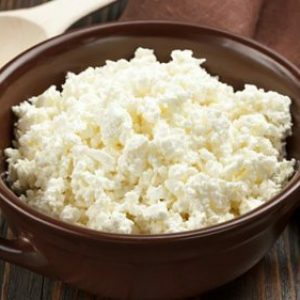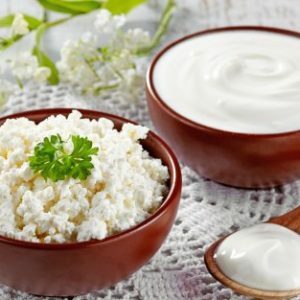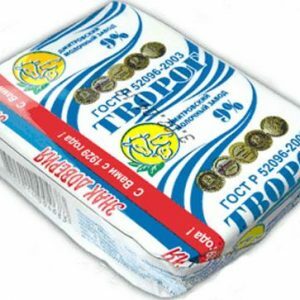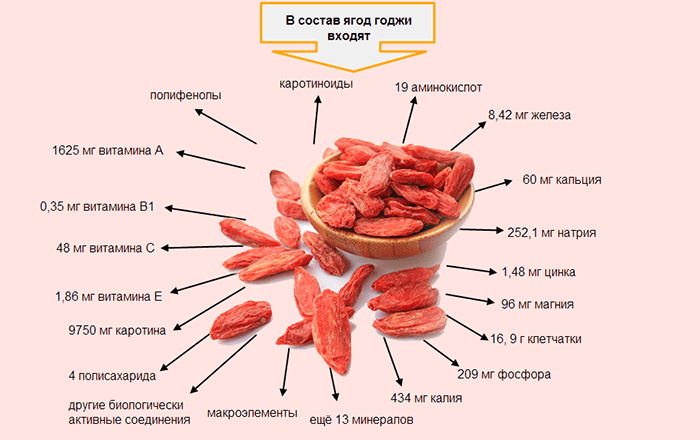Cottage cheese: benefit and harm of a sour milk product

Curd is known to people for a long time - ever since they learned to "extract" milk from a cow.This product has a pleasant consistency, high taste qualities and is used in cooking so extensively that it can be used to prepare a full dinner.
There are four main types of cottage cheese - fatty, bold, low-fat and low-fat.Separately considered, the so-called "home" cottage cheese - a product prepared in a simple way at home.And even in this case, experts say about the great benefits of the fermented milk product and its high taste qualities !True, emphasize the need to comply with all hygiene rules during the preparation of "home" cottage cheese - only in this case it will be possible to consider the finished product useful to the human body.
Ingredients, caloric content and useful properties of curd
The nutritional value of cottage cheese varies according to the fat content( data are given per 100 g):
Fat-free curd:
- Caloric value: 78 kCal
- proteins - 16.8G;
- fats - 0.1 g;
- carbohydrates - 2.1 g.
Low-fat curd:
- Caloric value: 121 kcal
- proteins - 17.2 g;
- fats - 5 g;
- carbohydrates - 2.1 g.
Breaded curd:
- Caloric value: 165 kcal
- proteins - 16 g;
- fats - 9 g;
- carbohydrates - 2.2 g.
Fatty cottage cheese:
- Caloric value: 200 kcal
- proteins - 15.1 g;
- fats - 18 g;
- carbohydrates - 2.8 g.
The curd composition is rich enough, but amino acids, calcium and phosphorus, vitamins A and E are especially prominent. Interesting fact - cottage cheese can be used both as a dietary product and as a menu component designed to restoreStrength of the patient, strengthen immunity.
The uniqueness of cottage cheese is that its proteins, getting into the human digestive tract, begin to be quickly absorbed, in contrast to proteins from other products.In the composition of these curd proteins there are tryptophan and methionine - amino acids, which have a beneficial effect on the work of all organs of the gastrointestinal tract.Therefore, the product in question is part of diets, which are prescribed to people with gastrointestinal diseases.
In addition, the use of cottage cheese is as follows:
-
 Normalizes and stabilizes the central nervous system.Relieves stress and improves psycho-emotional state, makes a person resistant to various shocks.
Normalizes and stabilizes the central nervous system.Relieves stress and improves psycho-emotional state, makes a person resistant to various shocks. - Contains in its composition calcium, phosphorus and a considerable dose of iron.The first two components are important for strengthening bones, teeth, nails and hair - regular use of cottage cheese removes the problem of delamination and brittle nails, dullness and dry hair, a tendency to fracture of bones.But iron is "responsible" for the level of hemoglobin.
- Vitamins present in curd, support the work of the organs of vision, regulate metabolic processes, provide strengthening of hair and nails.
- Helps to get rid of excess weight - if you use cottage cheese for food without flavors and only lean / cereal, you can easily get rid of a couple of kilograms per month.
Note: doctors recommend eating low-fat cottage cheese - it is very easily absorbed by the body, and the composition of the fat content of the product does not change.It is especially important not to overload the digestive system to the elderly, children and young mothers.
Possible harm from cottage cheese
Curd is well known to many people, it is consumed both in childhood and at an older age. And yet, it is necessary to clearly indicate what harm this fermented product can bring to the human body:
- First, the curd contains a large amount of protein, and this substance can negatively affect the work of the kidneys.Therefore, doctors do not recommend people with kidney diseases to consume too much curd - you need to limit 100 grams a day and not more than 3 times a week.
- Secondly, cottage cheese contains a certain amount of fat and therefore, when consuming fatty varieties of this sour milk product can increase the level of cholesterol in the blood.But this is a direct way to atherosclerotic changes in blood vessels, the formation of blood clots.
 And one more important point - in curd can be present E. coli, which when ingested into the human body provokes the rapid development of various infectious diseases. Of course, if the cottage cheese was prepared in compliance with all sanitary and hygienic standards, then there can not be any intestinal stick, but it is also important to observe the terms / conditions of storage of this fermented milk product.Therefore, when buying cottage cheese, it is worthwhile to carefully study the shelf life - the more they are, the further the product is from naturalness and benefit.
And one more important point - in curd can be present E. coli, which when ingested into the human body provokes the rapid development of various infectious diseases. Of course, if the cottage cheese was prepared in compliance with all sanitary and hygienic standards, then there can not be any intestinal stick, but it is also important to observe the terms / conditions of storage of this fermented milk product.Therefore, when buying cottage cheese, it is worthwhile to carefully study the shelf life - the more they are, the further the product is from naturalness and benefit.
Curd is a delicious, nutritious, useful product that enjoys the special love of physicians.It can be consumed both in its natural form and with the addition of honey / condensed milk / nuts / fruits.From it they prepare delicious pastries, use them as fillings for pies and vareniki and add them to salads with vegetables.Dietitians are convinced that the product in question should be present on the table of each person, regardless of his age and existing diseases.



